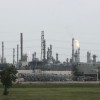Background
Texas has had a tenuous relationship with the Environmental Protection Agency (EPA). Texas legislators and business owners have refused EPA monitoring of greenhouse gas emissions and air permit requirements in the state. Reasons for this vary and include claims of states’ rights and rejection of EPA rulings on the dangers of six greenhouse gases. In May 2011, the Texas House passed a measure asking federal legislators to prevent the EPA from regulating emissions in the state under the Clean Air Act. The state lost similar legal battles in 2010 and 2011.
EPA detractors note that the agency’s standards could threaten Texas jobs if stricter measures put older coal plants out of business. The Electric Reliability Council of Texas (ERCOT) says the regulations could be too costly for older plants to accommodate, adding that it would take time to retrofit or replace plants that do not meet the standards. The gap could threaten the state’s ability to produce sufficient electricity to maintain power in the state during emergencies such as the 2011 rolling blackouts that left millions of Texas temporarily without power.
EPA standards are in flux, and changes could push Central Texas into the “non-attainment” zone, meaning it doesn’t meet regulations. That could hurt Texans by way of lost federal funding for environmental programs. The EPA faces budget challenges after federal cuts that may limit its ability to regulate carbon emissions throughout the country, Texas included.




